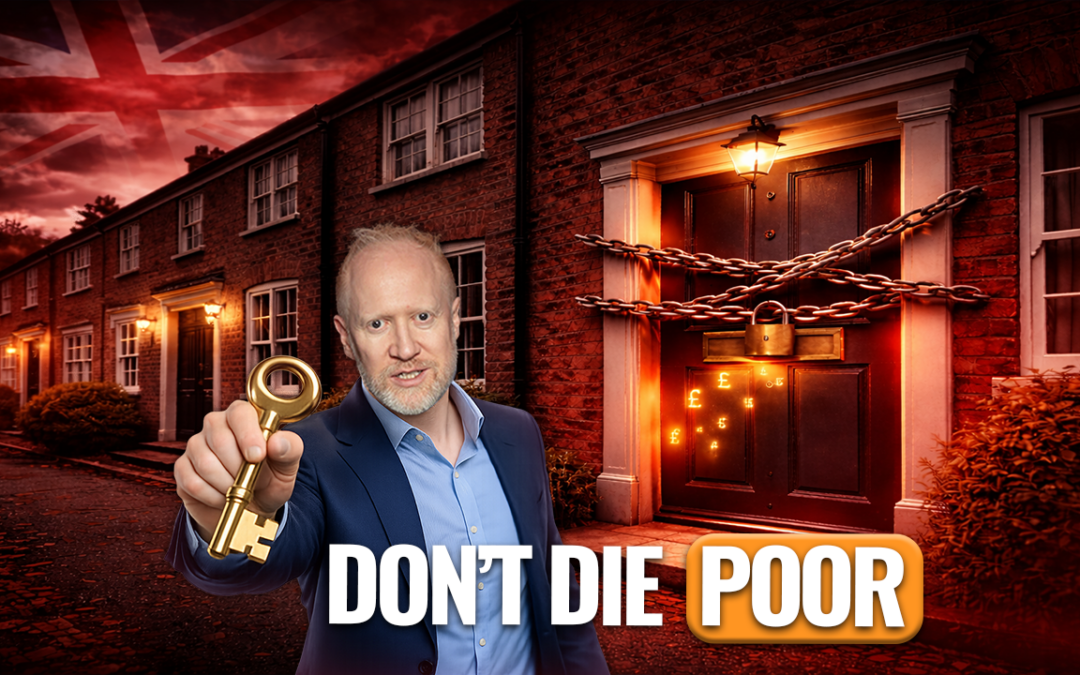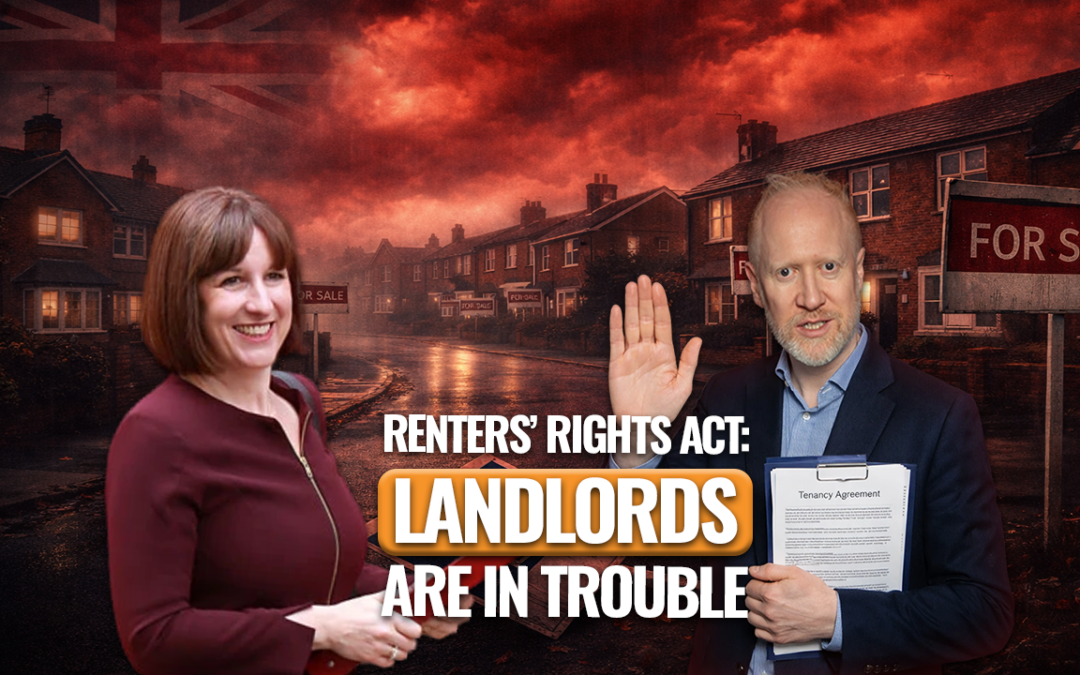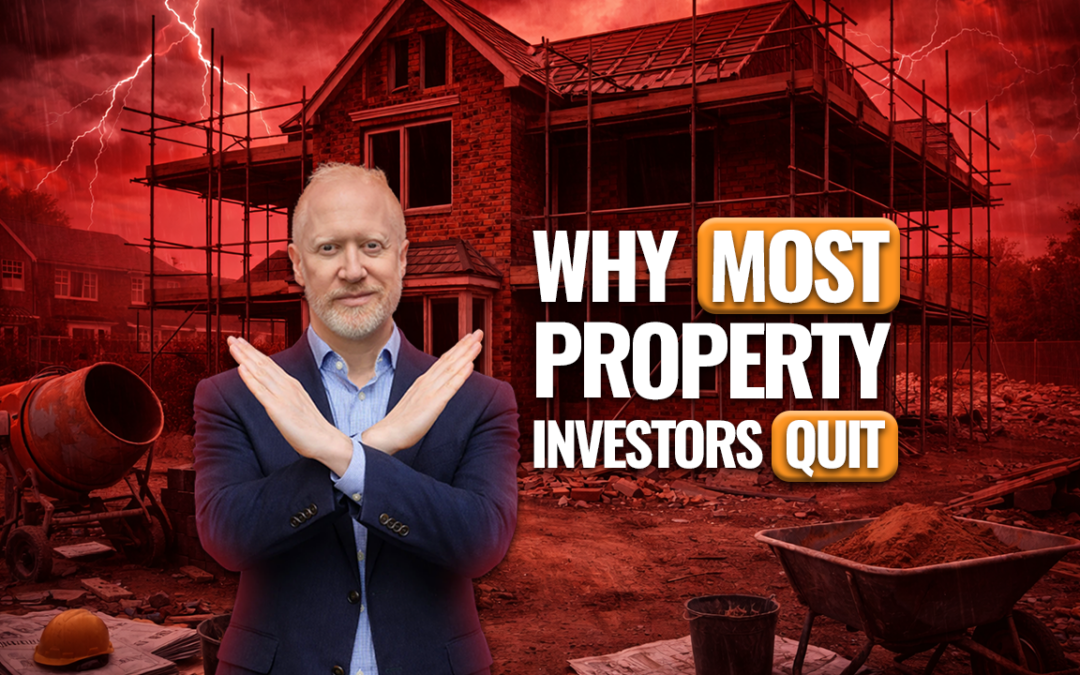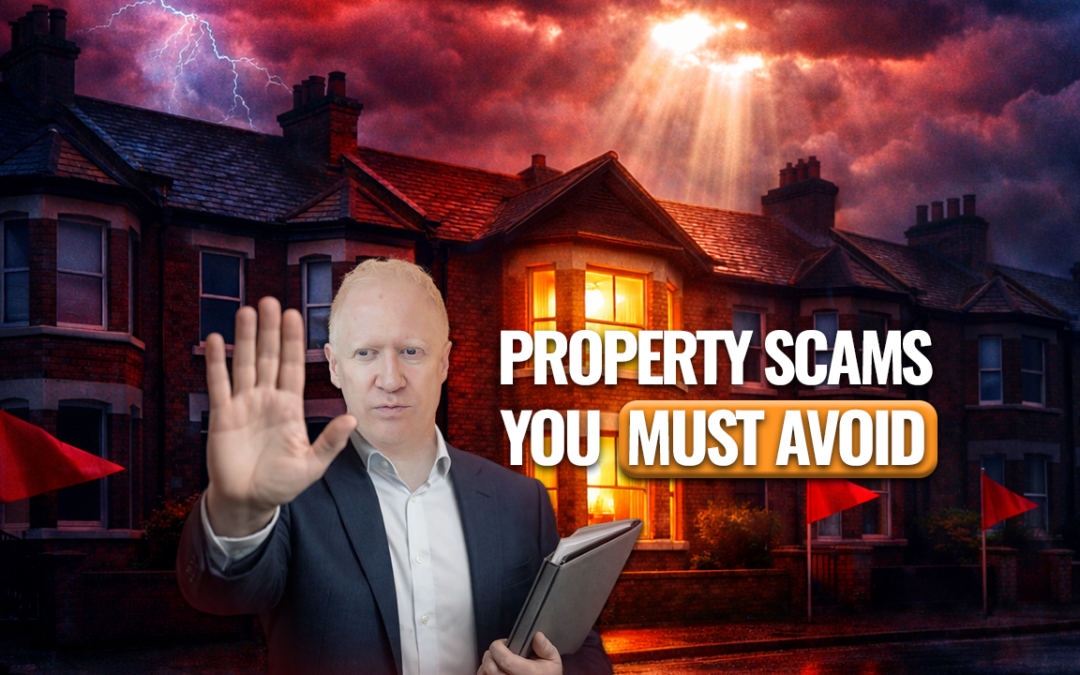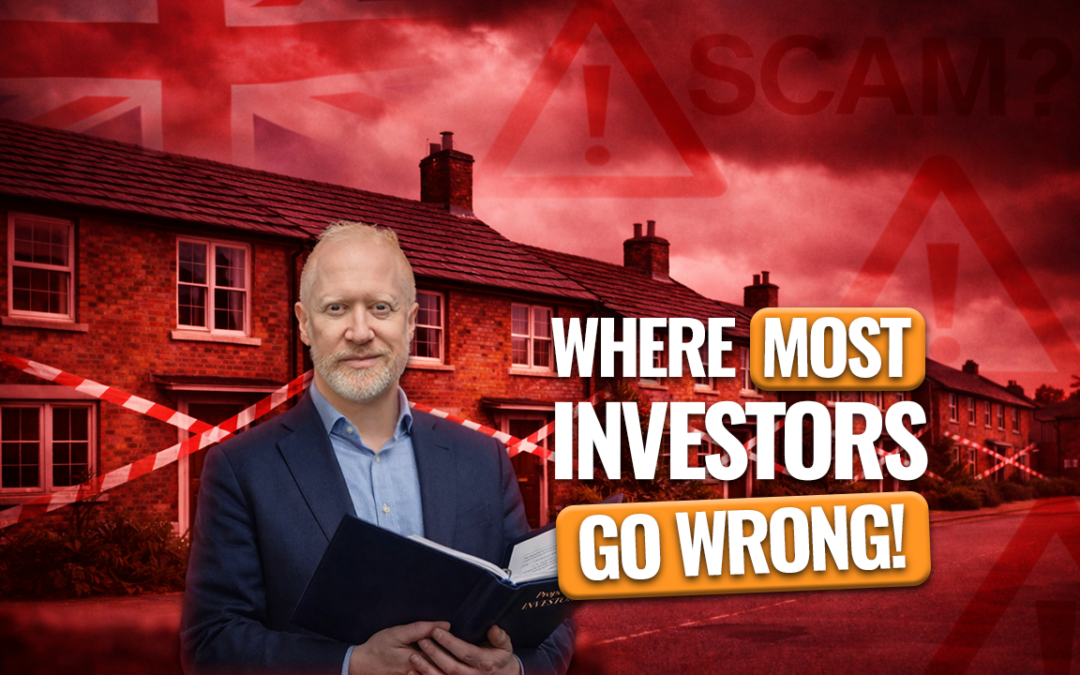If you’ve been following the news lately, you’ve probably seen headlines warning about falling house prices, rising interest rates, and predictions of a looming UK property market crash. For many, that sounds like bad news. If you’re an investor or thinking of becoming one, you might be wondering, will you lose money if the market drops?
The truth is this: a property market crash does not automatically mean you will lose money. In fact, if you understand the fundamentals of property investing, a downturn could be one of the most profitable times in your investing career.
Who Actually Loses Money in a Crash?
Not everyone loses when property prices fall. The only investors who truly lose money in a property market crash are those who are forced to sell at the wrong time. That might happen because:
-
They have poor cash flow and can’t cover the mortgage
-
Their short-term finance has come to an end and they can’t refinance
-
Personal circumstances force them to liquidate assets quickly
If you’re under pressure to sell in a falling market, you’ll likely have to accept a lower price and that’s when the loss becomes real.
But if you’re able to hold on, even if the paper value of your property drops, you haven’t lost anything until you sell. Your tenants are still paying rent, your mortgage is still being covered, and you can ride out the storm.
Lessons from the 2008 Property Crash
The last property market crash in 2008 created opportunities for those prepared to buy at the right price. Interest rates then were similar to where they are today, and the market faced a major shock after years of growth. Many investors panicked, selling their properties at a loss.
Others saw the situation differently. I was actively buying, and so were many of my students. Why? Because we knew that the real opportunity comes when most people are too scared to act.
Some property owners at the time were in negative equity, the value of their property was less than the mortgage they owed. They couldn’t afford the repayments, so they simply handed the keys back to the bank. For savvy investors, this created opportunities to buy quality properties at a fraction of their previous value.
Why Rents Often Rise in a Downturn
Even during a UK housing crash, rental demand can increase. When mortgages become harder to get, more people choose to rent. This often means:
-
Higher rental demand
-
Fewer void periods for landlords
-
Potential rent increases in high-demand areas
So, a crash in the property market doesn’t always mean bad news for landlords, in some cases, it can boost your rental income.
How to Protect Yourself from Market Drops
To safeguard your investments against a property market crash, follow these principles:
1. Always Buy for Cash Flow, Not Just Capital Growth
It’s tempting to focus on the idea that property prices will always go up, but growth isn’t guaranteed in the short term. The real safety net is positive cash flow, where your rent covers your costs and leaves you a profit every month.
2. Stress-Test at Higher Interest Rates
Don’t base your deals on today’s rates. I always make sure my deals still work at 6% interest, even if the current rate is lower. That way, if rates rise, I’m prepared.
3. Keep a Financial Buffer
Having reserves for voids, repairs, and unexpected costs means you won’t be forced to sell if something goes wrong.
4. Take a Long-Term View
Property is a long-term game. If you hold through a downturn, values typically recover and often exceed previous highs.
How to Spot Opportunities in a Crash
A crash in the property market can present incredible buying opportunities. Motivated sellers are more open to:
-
Below market value purchases
-
Lease options
-
Vendor finance
-
Joint ventures
When others are fearful, a prepared investor can turn a housing market collapse into long-term profit.
Real-World Example
One of my students bought a property during the last property market crash at a 25% discount. It produced strong cash flow immediately and was worth 40% more within five years. This shows how a property downturn can create lasting wealth.
Myths About Property Market Crashes
Myth 1: Everyone loses money
False. Only those forced to sell at the wrong time take a loss.
Myth 2: You shouldn’t buy when prices are falling
In reality, falling prices can be the best time to buy, if the deal stacks up. A UK housing crash can be the best time to buy.
Myth 3: Rents fall during a crash
In many cases, rental demand and prices rise because fewer people are buying
Action Plan for Thriving in a Downturn
If another property market crash happens, here’s what you should do:
- Review your current portfolio – Make sure each property is cash-flow positive.
- Build your knowledge – Learn strategies for buying in any market condition.
- Prepare your finance – Have funding options ready so you can move quickly on deals.
- Network with other investors – You’ll find more opportunities and learn from others’ experiences.
- Stay disciplined – Don’t overpay, even in a competitive market.
FAQs: Property Market Crash
Q: How long does it take for property prices to recover after a crash?
Historically, UK property markets have bounced back within 5-7 years after a downturn.
Q: Should I sell before the market drops further?
If your property is profitable and you can hold long term, selling now may not be necessary.
Q: Is buy-to-let still worth it in a crash?
Yes, if the deal has strong cash flow from day one.
Final Thought
The truth is, a property market crash can be one of the greatest opportunities for an investor. By focusing on cash flow, maintaining a long-term perspective, and staying prepared, you can thrive when others are struggling.


